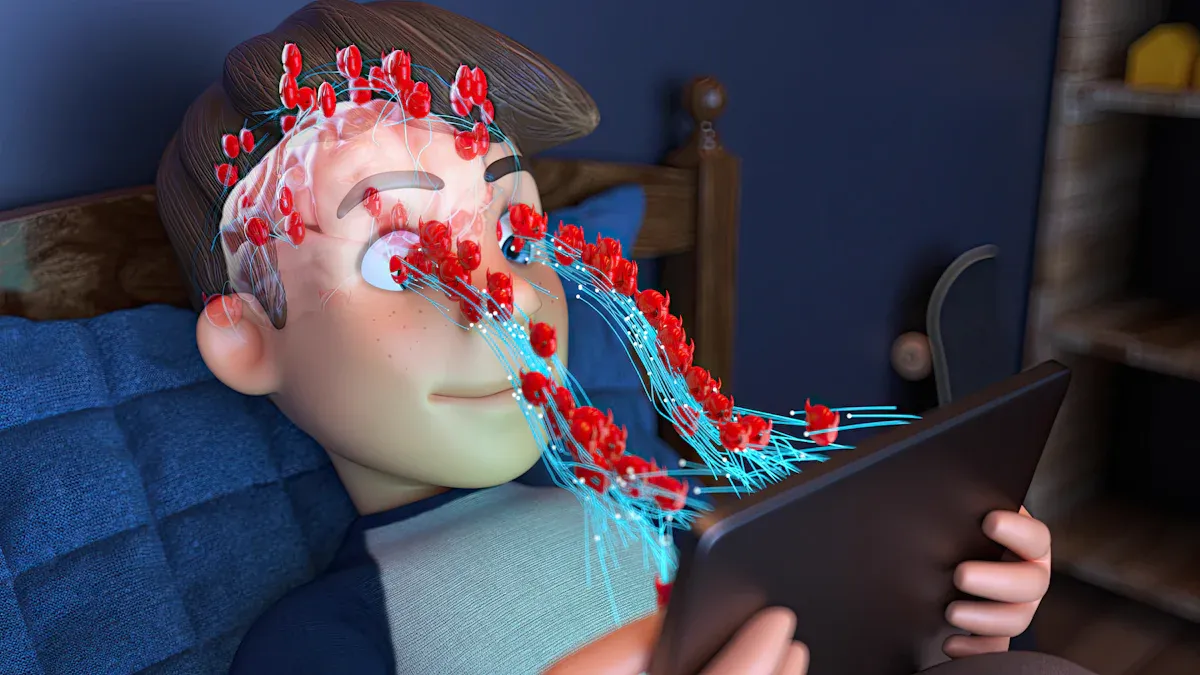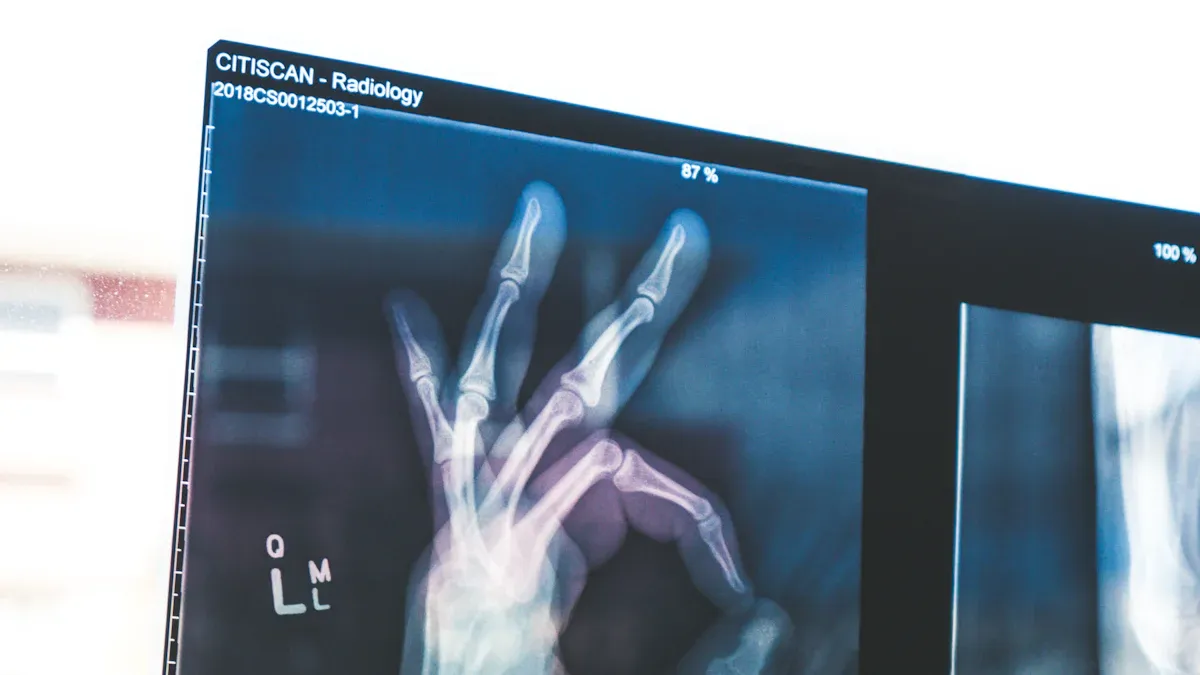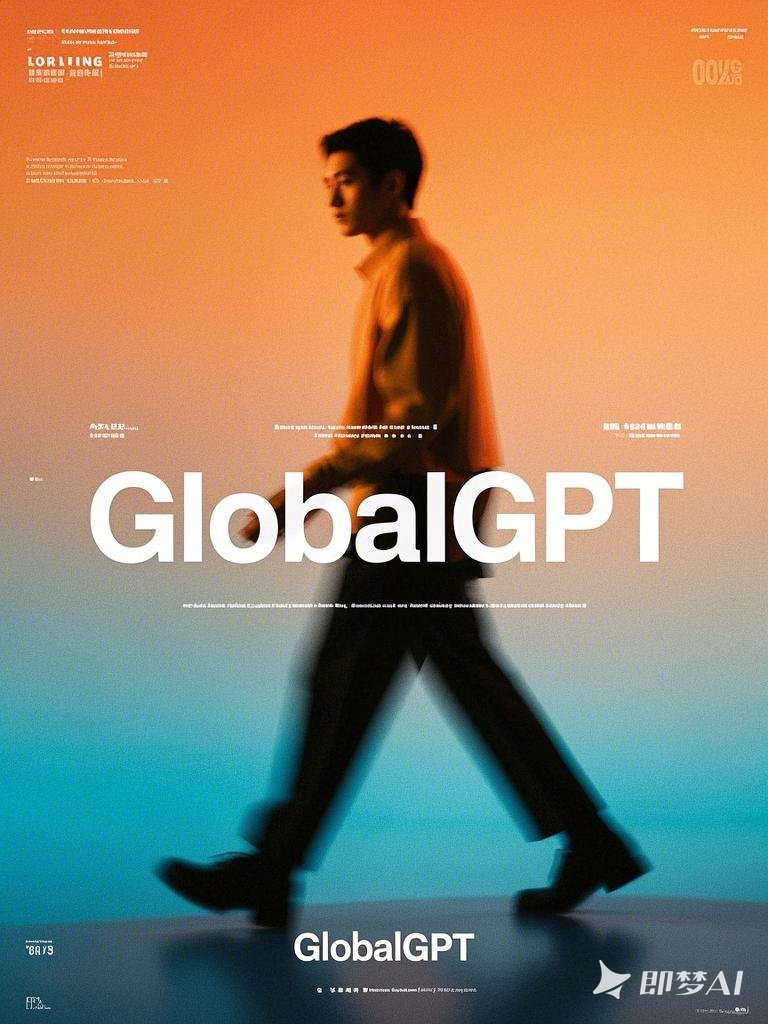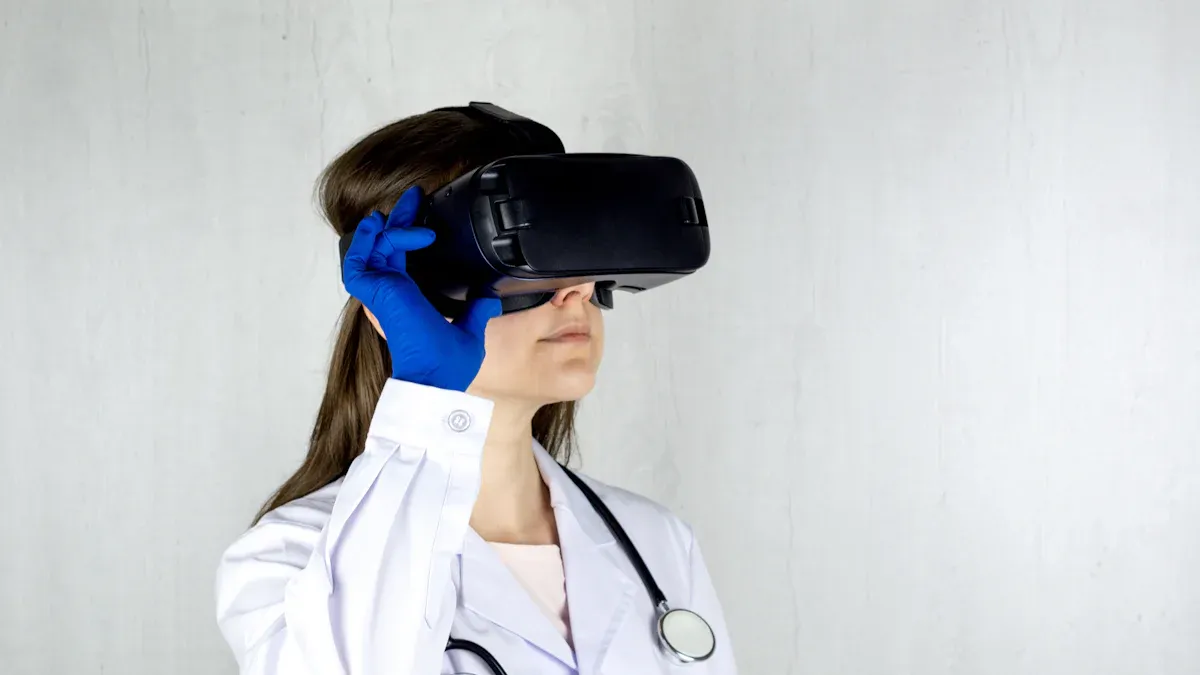AI Tools for Smarter Medical Decisions in 2025

Consider a tool that assists in making quick, informed medical decisions. That’s the role artificial intelligence is playing in healthcare today. AI tools are transforming how doctors diagnose, treat, and care for patients. They not only operate swiftly but also maintain a high level of accuracy. You can use AI tools to check diagnoses or find treatments. In fact, try using AI tools for a second medical suggestion to enhance the decision-making process. These tools empower doctors to provide better care and save time. Interested in learning more? Try GlobalGPT to explore more AI tools anytime.
AI Tools for Diagnostics

Artificial intelligence is changing how doctors find health problems. With smart AI tools, results are faster and more accurate. This helps doctors give care on time. Let’s see how AI improves imaging, radiology, and finding diseases early.
Imaging and Radiology
AI tools for medical images
AI tools are helping doctors check medical images like X-rays fast. They can find problems in seconds that might take hours for people. For example, AI can spot small tumors or broken bones that are easy to miss. This helps doctors decide quickly and focus on helping patients.
Want to learn about more AI tools? Try GlobalGPT to see how AI helps in healthcare.
Helping radiologists with real-time support
Radiologists often have too much work. AI tools can help by pointing out problems while they check images. These tools don’t replace doctors but make their work better. AI reduces mistakes and makes results more accurate. This helps doctors and gives patients the right care.
Early Disease Detection
Finding chronic diseases early
AI is also helping find long-term diseases like diabetes early. It looks at patient data to find warning signs before the disease gets worse. This helps doctors treat patients sooner and improve their health over time.
Spotting rare diseases with AI
Rare diseases are hard to figure out. AI tools can study lots of medical data to find these diseases fast. They match patient symptoms with global records to give ideas doctors might not think of. This helps patients get the right care quickly.
AI is making diagnostics smarter and faster. From imaging to early disease detection, AI tools are here to help. Want to know more? Use GlobalGPT to see how AI can improve your work.

AI Tools for Personalized Treatment
Think about treatments made just for you. AI is making this real in healthcare. These tools help doctors create plans that match each patient. Let’s see how AI changes medicine with precision tools and drug research.
Precision Medicine Platforms
AI tools for studying genes
AI is helping doctors understand your DNA better. These tools quickly study your genes to find health clues. For example, they can spot genes linked to diseases or medicine reactions. This helps doctors choose the best care for you.
Tip: Want to know how AI helps in healthcare? Try GlobalGPT to learn more.
Custom treatment suggestions
AI doesn’t just study your genes. It also suggests treatments that fit you. By using your genetic and medical data, AI finds what works best. This means fewer guesses and better care. It’s like having a health helper just for you.
Drug Discovery and Development
AI for faster drug research
Making new medicines used to take a long time. AI speeds this up by studying huge amounts of data. It predicts how drugs will work in the body, saving time. This helps patients get new treatments faster.
Finding treatments for each patient
AI also helps find the right therapy for you. It looks at your health data to pick the best drugs or treatments. This way, care is more effective with fewer side effects. It’s a big step forward for patient health.
AI is changing medicine to make treatments better. From studying genes to finding new drugs, AI tools are improving healthcare. Want to explore more? Use GlobalGPT to discover AI tools for health.
AI Tools for Administrative Efficiency
Healthcare paperwork can feel like too much work. Tasks like managing schedules and documents take a lot of time. AI tools can help make these jobs easier. Let’s see how AI can save time and reduce stress.
Workflow Automation
AI for planning and managing resources
Think of a tool that plans your day for you. AI can organize schedules and predict patient needs. It helps assign rooms or set appointments without problems. This means fewer delays and smoother days. You can focus on patients while AI handles the planning.
Tools to cut down on admin work
Jobs like billing and insurance checks take lots of time. AI tools can do these tasks faster by automating them. They fill out forms, check insurance, and send reminders to patients. This saves time and reduces mistakes. With AI, you can spend more time helping patients.
Tip: Want to find more AI tools for healthcare? Try GlobalGPT to see helpful options.
Medical Documentation
AI for taking notes and transcribing
Writing notes during visits can slow you down. AI tools can listen and write notes for you in real time. They make sure you don’t miss anything important. This lets you focus more on your patients.
Tools for updating health records
Updating health records can feel boring and slow. AI tools make it quicker and easier. They pull details from your notes and update records automatically. This saves time and keeps records correct. You’ll have more time to care for patients.
AI is changing how healthcare handles admin work. From planning to record-keeping, these tools save time and make work easier. Want to learn more ways AI can help? Use GlobalGPT to find smart solutions for healthcare.
AI Tools for Mental Health Support

Mental health matters as much as physical health. AI is helping with this. AI tools for mental health give support anytime you need it. They also offer care that fits your needs. Let’s see how AI is changing mental health care.
Virtual Therapists and Chatbots
AI for round-the-clock mental health help
Think of having someone to talk to anytime. AI chatbots and virtual therapists make this real. These tools give quick help if you feel worried or stressed. They understand your feelings and reply kindly using smart language tools. While they don’t replace real therapists, they’re a good start for getting help.
Tip: Want to know more? Use GlobalGPT to find AI tools for health.
Tools to track mental health changes
AI can watch your mental health over time. It uses data from apps, devices, or virtual helpers. This helps doctors notice mood or behavior changes early. By spotting problems sooner, these tools make sure you get the right care fast.
Predictive Mental Health Analytics
AI for finding at-risk patients
AI helps find people who might face mental health issues. It studies medical records, social details, or even how you talk or write. This helps doctors step in early and give support before things get worse.
Tools for custom mental health care
Every person is different, and AI knows this. AI tools help doctors make care plans just for you. They look at your history and past treatments to suggest what works best. Whether it’s changing medicine or therapy, AI makes sure your care fits you.
AI is changing mental health care for the better. From chatbots to smart tools, it makes help easier to get. Want to learn more? Use GlobalGPT to explore AI tools for mental health.
AI Tools for Patient Engagement
AI is making it easier to involve patients in their care. These tools help you learn, manage health, and talk to doctors. Let’s see how virtual assistants and remote monitoring improve patient engagement.
Virtual Health Assistants
AI for answering health questions
Think of having a health helper anytime. Virtual assistants use AI to answer your questions fast. They can explain symptoms, give advice, or share treatment details. It’s like having a doctor in your pocket, ready to help.
Tip: Check out GlobalGPT to find more helpful AI tools for health.
Tools for remembering medications
Taking medicine on time can be hard. AI tools send reminders and track if you miss doses. They help you stick to your plan and stay healthy. With AI, managing medicine is simple and stress-free.

Use Claude Here
Remote Monitoring and Telehealth
AI for checking wearable device data
Wearables do more than count steps. They collect health data, and AI studies it for insights. From heart rate to sleep, AI helps find problems early. Remote monitoring is now smarter and easier to use.
Tools for better virtual doctor visits
Online doctor visits are common now. AI makes them better by analyzing data and giving advice. It ensures doctors have the right info to help you. AI and remote monitoring make virtual care easy and useful.
AI is changing how patients stay involved in their care. From answering questions to improving online visits, AI makes healthcare better. Want to learn more? Try GlobalGPT to explore amazing AI tools for health.
Challenges and Ethical Considerations in AI in Healthcare
AI is changing healthcare, but it has some problems. When using AI, think about issues like privacy and fairness. Let’s look at these challenges and how they affect doctors and patients.
Data Privacy and Security
Keeping patient data safe in AI systems
AI in healthcare needs to protect patient information. These systems handle a lot of private medical data. If this data isn’t safe, it could be stolen or misused. You wouldn’t want your health details shared, right? That’s why AI tools need strong protections like passwords and encryption. These steps keep data secure and help people trust AI.
Tools to follow privacy rules
Doctors must follow strict rules when using AI. Laws like HIPAA in the U.S. protect patient privacy. AI tools can help by checking data use and spotting risks. For example, some tools hide patient names to prevent leaks. If you’re unsure about rules, tools like GlobalGPT can help you find safe AI options.
Bias and Fairness in AI
Fixing unfair AI decisions
AI isn’t always fair. Sometimes, it makes mistakes because of bad training data. For example, an AI tool might not work well for certain groups of people. You can choose tools designed to avoid these problems. Developers are working to make AI better, but doctors must also stay alert.
Making healthcare fair for everyone
Fair AI means giving everyone good care. AI tools should help all patients, no matter their background. For instance, AI can find areas with fewer doctors and suggest ways to help. By using AI carefully, you can make sure everyone gets the care they need.
AI in healthcare is powerful, but it has challenges. By focusing on safety and fairness, you can use AI to help people while keeping their trust. Want to find ethical AI tools? Try GlobalGPT to explore options that match your values.
AI tools are changing how medical care works. They’re not only fast but also help make better choices. Using them wisely builds trust with patients. Think of a future where healthcare is quicker and fits everyone’s needs. That’s what AI aims to do by 2025 and later. Want to learn more? Try GlobalGPT to find AI tools that improve healthcare.
